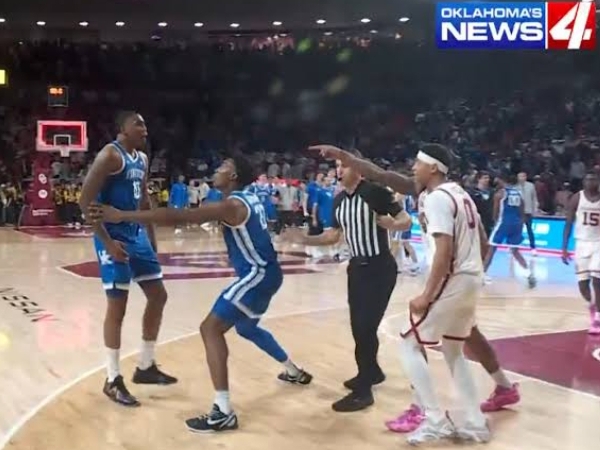Late-Game Drama or Corruption? NCAA Verdict on Referees Leaves Fans Outraged!
The Kentucky vs. Oklahoma showdown was supposed to be a thrilling battle between two top programs, but instead, it has been overshadowed by controversy.
Fans, analysts, and even players have questioned the officiating after a series of questionable calls in the final minutes. Many are now wondering: Was this simply bad refereeing, or something far more sinister?
The drama unfolded in the closing moments of the game, with Kentucky clinging to a narrow lead. Oklahoma appeared to have momentum, but a series of highly questionable foul calls derailed their comeback attempt. On the other hand, Kentucky seemed to benefit from favorable officiating, with calls consistently going in their favor. The most controversial moment came when Oklahoma was called for a phantom foul with seconds left, allowing Kentucky to seal the win at the free-throw line.
As outrage grew, speculation turned to something even more serious—were the referees influenced by outside factors? Rumors began swirling that certain officials may have had ties to betting interests, a growing concern in college sports due to the rise of legal sports gambling.
The NCAA, aware of the explosive nature of these allegations, launched an immediate investigation into the matter.
After days of speculation, the NCAA finally issued its verdict: the referees had been cleared of any betting-related misconduct. According to the investigation, there was no direct evidence linking any official to gambling or game-fixing. However, the NCAA did acknowledge that the officiating in the game failed to meet expected standards and stated that internal reforms would be considered to ensure fairness in future games.
Despite this ruling, many fans and analysts remain unconvinced. Social media has been flooded with videos and analysis breaking down the controversial calls, with some arguing that the game was manipulated, even if unintentionally. Oklahoma fans, in particular, have expressed frustration, claiming their team was robbed of a fair chance to win.
The controversy has reignited debates over officiating accountability in college sports. Should referees face stricter oversight? Should officials be required to disclose any potential conflicts of interest, especially with the rise of sports betting? The NCAA may have issued its verdict, but for many, questions still remain.
While Kentucky’s win stands in the record books, the cloud of controversy lingers. If nothing else, this scandal has shown that college basketball must do more to protect the integrity of the game—before another late-game call sparks another firestorm of speculation.

